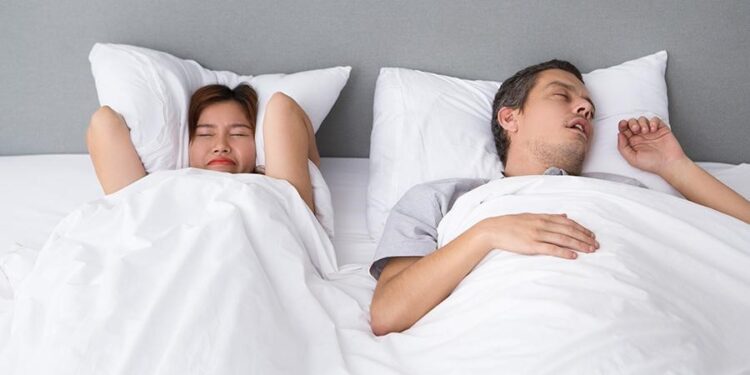Affected millions of people worldwide, sleep apnea is a widespread but usually untreated disorder. Although this sleep condition is somewhat common, a lot of incorrect material is available about it. These false beliefs could cause delays in diagnosis and treatment, thereby compromising important elements of health. Improvement of general well-being and good control of sleep apnea depends on an awareness of the realities of the disorder. This page seeks to clear some of the most common misunderstandings concerning sleep apnea by means of clarification and encouragement for everyone afflicted to seek suitable treatment.
Table of Contents
Common Myths About Sleep Apnea: Debunking Misconceptions
Myth 1: Only Overweight Individuals Suffer from Sleep Apnea
One of the most widely held erroneous ideas regarding sleep apnea is that it predominantly affects overweight individuals. Although extra weight—especially around the neck—is a main risk factor, sleep apnea is not limited to obese people. This disorder can strike skinny persons as well as very young toddlers. Various medical disorders unrelated to body weight, structural anomalies including a narrow airway, and hereditary sensitivity all help to contribute to sleep apnea to some degree. Early diagnosis and treatment depend on everyone knowing their own possible risk.
Myth 2: Sleep Apnea Is Harmless
The reality is far from the idea that sleep apnea is only a minor discomfort or inconvenience. Ignored, sleep apnea can be a quite serious medical problem. The recurrent disruptions in breathing lower blood oxygen levels, therefore stressing the cardiovascular system. This raises the risk of stroke, heart disease, and high blood pressure. Untreated sleep apnea can potentially aggravate type 2 diabetes, persistent fatigue, and maybe cognitive problems. Knowing the possible health hazards emphasizes the need for quick response.
Myth 3: Alcohol and Sleep Aids Improve Sleep Quality for Those with Sleep Apnea
Against received wisdom, drinking and sleep aids can aggravate sleep apnea symptoms. Alcohol helps the muscles of the neck to relax, therefore raising the risk of airway constriction during sleep. Similar central nervous system inhibition induced by sedative drugs could aggravate respiratory disorders. People with sleep apnea should avoid drinking before bed and see doctors about reasonable substitutes to control insomnia or other sleep-related problems.
Myth 4: Sleep Apnea Doesn’t Affect Mental Health
Beyond simply physical health, sleep apnea has major effects on mental and emotional well-being. Episodes of apnea disrupt sleep, which inhibits the brain’s ability to regulate mood and process emotions, often leading to depression, anxiety, and irritability. Moreover, cognitive skills such as memory, concentration, and decision-making suffer due to reduced oxygen and sleep deprivation. Many individuals seeking to enhance focus and wakefulness choose to buy Modafinil, a well-known nootropic, to counteract the cognitive fatigue caused by sleep disorders. Treating sleep apnea can significantly improve mental health, restore emotional balance, and enhance cognitive sharpness.
Myth 5: Surgery Guarantees a Cure
Some people have great success with surgical therapies treating sleep apnea, including the removal of swollen tonsils, adenoids, or other obstructive structures. For those with intricate or multifactorial causes of sleep apnea in particular, however, surgery is not a sure solution. Post-surgical patients may still need continual treatment involving lifestyle adjustments or CPAP if they want to completely control symptoms. Whether surgery is the right decision calls for a thorough evaluation by a sleep specialist.
Myth 6: Daytime Sleepiness Is the Only Symptom
Though excessive daytime weariness is a hallmark of sleep apnea, the condition can manifest in many different ways. Common symptoms include morning headaches, difficulty concentrating, mood swings, and dry mouth upon rising. Some patients may also have nocturnal symptoms, including dyspnea, frequent urination, or restless sleep. Knowing the greater range of symptoms will help diagnose those who might not be aware they have sleep apnea.
The Role of Modalert in Sleep Apnea Management
One of the trickiest aspects of sleep apnea is controlling acute daytime tiredness, which persists even after ample hours of rest. Many times, Modalert, a medication boosting wakefulness, is provided to help individuals stay conscious and attentive during the day. Modalert stimulates the central nervous system to offset the effects of insufficient sleep, therefore improving cognitive ability and production.
Although it cannot treat the underlying causes of sleep apnea, Modalert treats one of the disorder’s most incapacitating symptoms, increasing quality of life even in this regard. Modalert is a handy tool that includes a holistic management plan’s main treatments like CPAP or lifestyle changes.
Conclusion
A complex condition with myths and misunderstandings, sleep apnea, can complicate suitable diagnosis and treatment. From the incorrect belief that OSA exclusively affects overweight individuals to the belief that CPAP is the only therapy, these misunderstandings can prevent patients from getting the treatment they need. By dispelling these incorrect ideas and raising knowledge, people will be able to better understand the condition and act in its management direction.
Modalert is a good option for people who have daytime sleep apnea since it increases alertness and attention. Still, it should be used in harmony with medical treatments targeting the fundamental causes of the disease. Combining appropriate treatments with the right understanding helps those with sleep apnea to improve their quality of life, health, and sleep.


 Home
Home









